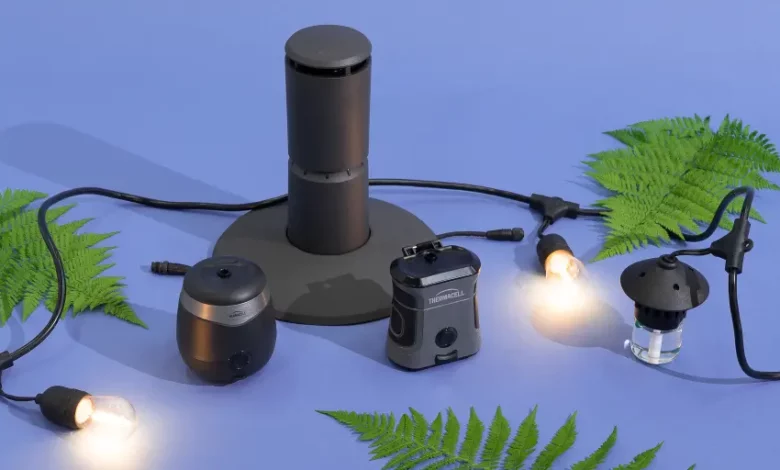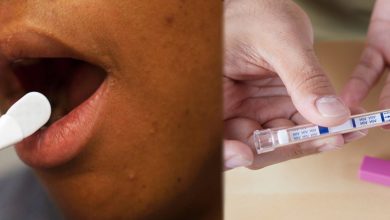
Top 15 Best Practices for Mosquito Control
Top 15 Best Practices for Mosquito Control – Mosquitoes can be a major nuisance and health hazard during the warm summer months. Their bites can leave itchy welts and potentially spread diseases like West Nile virus, Zika virus, and malaria. Implementing effective mosquito control practices is crucial to reducing mosquito populations and protecting public health. This article will outline the top 15 best practices for mosquito control in detail, covering different methods and best applications.Top 15 Best Practices for Mosquito Control
The Top 15 Best Practices for Mosquito Control Are:
1. Eliminate Standing Water
The most basic and essential mosquito control practice is eliminating any standing water on your property. Mosquitoes lay eggs in stagnant water sources, which later hatch into larvae and develop into biting adults. Take time to dump or drain items that collect rain or irrigation water such as flower pots, buckets, tires, tarps, clogged gutters, and birdbaths. Change the water in pet dishes, fountains, and pools regularly. Keep pools chlorinated and filtered. Fill in puddles and low areas on your property that tend to collect water after rains. Eliminating standing water removes breeding habitat and stops mosquitoes from multiplying.
👉 Relocate to Canada Today!
Live, Study and Work in Canada. No Payment is Required! Hurry Now click here to Apply >> Immigrate to CanadaRead Also: Top 15 Timber-Producing Countries in Asia
2. Apply Larvicides
Applying EPA-approved larvicides is an effective chemical control method. Larvicides like Bti (Bacillus thuringiensis israelensis) kill mosquito larvae in water sources before they mature into adults. Spot treat standing water that can’t be drained, like ponds and flooded areas, with larvicide briquettes, dunks, granules, or liquids as needed throughout mosquito season. Always carefully follow label directions. Larviciding regularly interrupts the mosquito life cycle and reduces the overall population.Good morning My Love Message
3. Use Adulticides Responsibly
Adulticide sprays and foggers can provide quick knockdown of adult mosquitoes. Active ingredients like pyrethrins, pyrethroids, and permethrin kill mosquitoes on contact. However, adulticides can also impact beneficial insects and must be applied cautiously. Follow label directions exactly and only spray at dusk when mosquitoes are most active but pollinators are less active. Do not overuse adulticides or apply them preventatively. Combine applications with removal of breeding habitat and monitoring to determine proper timing and frequency. Alternate products and modes of action to reduce chances of mosquito resistance.
4. Keep Mosquitoes Out of Your Yard
There are several strategies to make your yard less inviting to mosquitoes. Keep the lawn mowed and trim vegetation to reduce resting habitats. Use oscillating sprinklers and fans to disrupt mosquito activity in outdoor areas. Place citronella candles, torches, and oil dispensers around your patio and deck to repel the insects. Install or repair window and door screens to keep mosquitoes outside. Replace outdoor lights with yellow bulbs, which are less attractive to mosquitoes than standard bulbs. Employ commercial traps and zappers near gathering areas to capture adult mosquitoes. Implement various deterrents to discourage mosquito activity in your yard.NYSC Portal
Read Also: Top 15 Countries for Oil and Gas Reserves in Europe
5. Apply Insect Repellent
Topical insect repellents significantly reduce mosquito bites when spending time outdoors. The most effective repellents contain DEET or picaridin. Apply a repellent containing at least 15% DEET or 20% picaridin to exposed skin when going outside during peak mosquito activity. Reapply according to the label’s duration. Consider wearing permethrin-treated clothing for longer protection from bites. Use Environmental Protection Agency (EPA)-registered products and follow directions carefully, especially when applying to children. Insect repellents keep mosquitoes from biting you, lowering risk of transmission.
6. Wear Protective Clothing
Wearing long sleeves, long pants, socks, and closed-toe shoes when outside during mosquito season provides a physical barrier against bites. Opt for lighter-colored clothing, which is less attractive to mosquitoes. Treating clothes with permethrin or purchasing pre-treated items adds further protection. Wear a hat when outdoors and consider tucking pants into socks to keep mosquitoes off your ankles. The more skin you cover, the less exposure you’ll have to biting mosquitoes. Protective clothing works well for short outdoor activities.JAMB portal
7. Schedule Outdoor Events Carefully
When planning outdoor evening events like parties, concerts, or weddings, consider timing and mosquito activity levels. Schedule get-togethers in the early evening before dusk, when mosquitoes are not yet very active. This can help attendees avoid high exposure to bites. If scheduling at dusk or later, take measures to control mosquitoes like applying adulticides before the event, using citronella products, and providing insect repellent. Notify guests in advance so they can take their own precautions against mosquito bites if the event will take place during prime mosquito hours.Information guide Nigeria
👉 Relocate to Canada Today!
Live, Study and Work in Canada. No Payment is Required! Hurry Now click here to Apply >> Immigrate to Canada8. Support Natural Predators
Boosting natural populations of dragonflies, birds, bats, and other mosquito predators can contribute to biological control. Place bat houses and birdhouses around your yard to provide habitat for these insect-eating species. Include nectar plants like clovers and coneflowers to attract predatory insects. Introducing fish like guppies or mosquitofish to ponds can also help, as they feed on mosquito larvae. Avoid killing beneficial predators. A healthy ecosystem with robust predator populations will help keep mosquito numbers in check.
Read Also: Top 15 Countries with the Most Beautiful Ladies in Africa
9. Use Light Traps
Mosquitoes are drawn to certain wavelengths of light. Take advantage of this behavior by installing light traps around your property. Traps use ultraviolet, infrared, incandescent, or LED bulbs to attract flying mosquitoes and then suck them into a containment unit using a fan. Light traps continuously capture adult mosquitoes and are highly effective when placed near breeding areas or gathering spaces. Multifunction traps can also emit repellents, insecticides, or carbon dioxide to improve effectiveness. Position traps 25-40 feet from recreational areas for optimal mosquito control.Romantic love message
10. Seal Doors and Windows
Mosquitoes sometimes enter structures when doors or windows are left open. Ensure that all screens on windows, doors, porches, patios, and vents are in good condition and properly installed. Repair or replace any screens with holes or gaps. Make sure doors and windows close tightly and seals are intact. Consider installing screen doors at entrances that lack them. Sealing up entry points keeps mosquitoes outside and reduces potential indoor bites. This prevents introducing mosquitoes to an indoor environment where they could persist.
11. Promote Air Circulation
Stagnant air allows mosquitoes to easily home in on hosts to bite. Using fans, opening windows, and running HVAC systems creates air currents that make it harder for mosquitoes to land and probe. Position floor or table fans on patios or decks to blow mosquitoes away. Open windows or run whole-house fans to prevent indoor areas from being stuffy when gatherings occur. Air conditioning also circulates air while making indoor conditions less hospitable to the insects. Moving air disperses host odors and deters mosquito activity.
12. Apply Insecticide Foggers
Insecticide foggers, also called misters or hazers, dispense fine aerosol droplets designed to drift through the air and kill adult mosquitoes on contact. Permethrin, pyrethrin, Chrysanthemum, and pyrethroid formulas are common active ingredients. Fogging is useful for knocking down populations before events or reducing mosquito numbers in high-traffic areas. Take care to avoid flowering plants that may be in bloom, and do not spray near beehives or sources of open water. Fogging provides quick but temporary relief from mosquitoes.
Read Also: Top 15 Countries with Stable Economic Conditions
13. Use Mosquito Dunks in Containers
Mosquito dunks provide long-lasting control of larvae in confined water sources like rain barrels, water gardens, fountains, and flower vases. The active ingredient in dunks is a biological larvicide Bacillus thuringiensis israelensis, or Bti. Simply toss a dunk into the water container. Bti will release for 30 days and kill mosquito larvae without harming plants, pets, or other wildlife. Dunks offer an environmentally friendly approach to managing mosquito breeding in small volumes of standing water. Monitor dunks monthly and replace as needed.
14. Introduce Predatory Fish
Introducing certain fish species to permanent ponds or water gardens can control mosquito larvae. Fathead minnows, mosquitofish, guppies, and goldfish will all eat mosquito larvae. Make sure the pond can support fish long term before adding any. Monitor oxygen levels and reduce excess vegetation. A properly balanced pond ecosystem with healthy predatory fish can significantly limit mosquito larvae. This method may need to be supplemented with other larvicides or pupicides for complete control. Always check state regulations before introducing non-native fish.
15. Use Bacillus sphaericus
Bacillus sphaericus, or Bs, is a naturally occurring soil bacterium used for biological control of mosquito larvae. Products containing Bs can be applied to stagnant water sources like abandoned swimming pools, retention ponds, stormwater basins, and septic ditches. Once ingested, Bs damages larvae midguts and hinders their ability to process food, leading to death before adulthood. Bs is non-toxic to humans, pets, plants, and wildlife while highly effective on Culex species mosquitoes in polluted water. This makes Bs ideal for recycling areas and other challenging larval habitats.
Read Also: Top 15 Nations with Vast Energy Resources
Conclusion
Controlling mosquitoes takes an integrative approach and commitment to consistency. Eliminating breeding habitat, applying larvicides, and deterring adult mosquitoes from yards and properties all play key roles. Continual monitoring helps determine appropriate timing and frequency of applications for maximum effectiveness. By incorporating a diversity of these top methods into a seasonal mosquito management plan, communities and homeowners can protect public health, maintain outdoor living spaces, and reduce nuisance populations. Many approaches are available—the key is sticking with a strategy using EPA-approved products according to label directions.
Check JAMB RESULT
Check and Confirm: How much is Dollar to Naira








